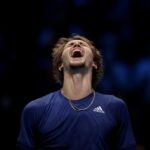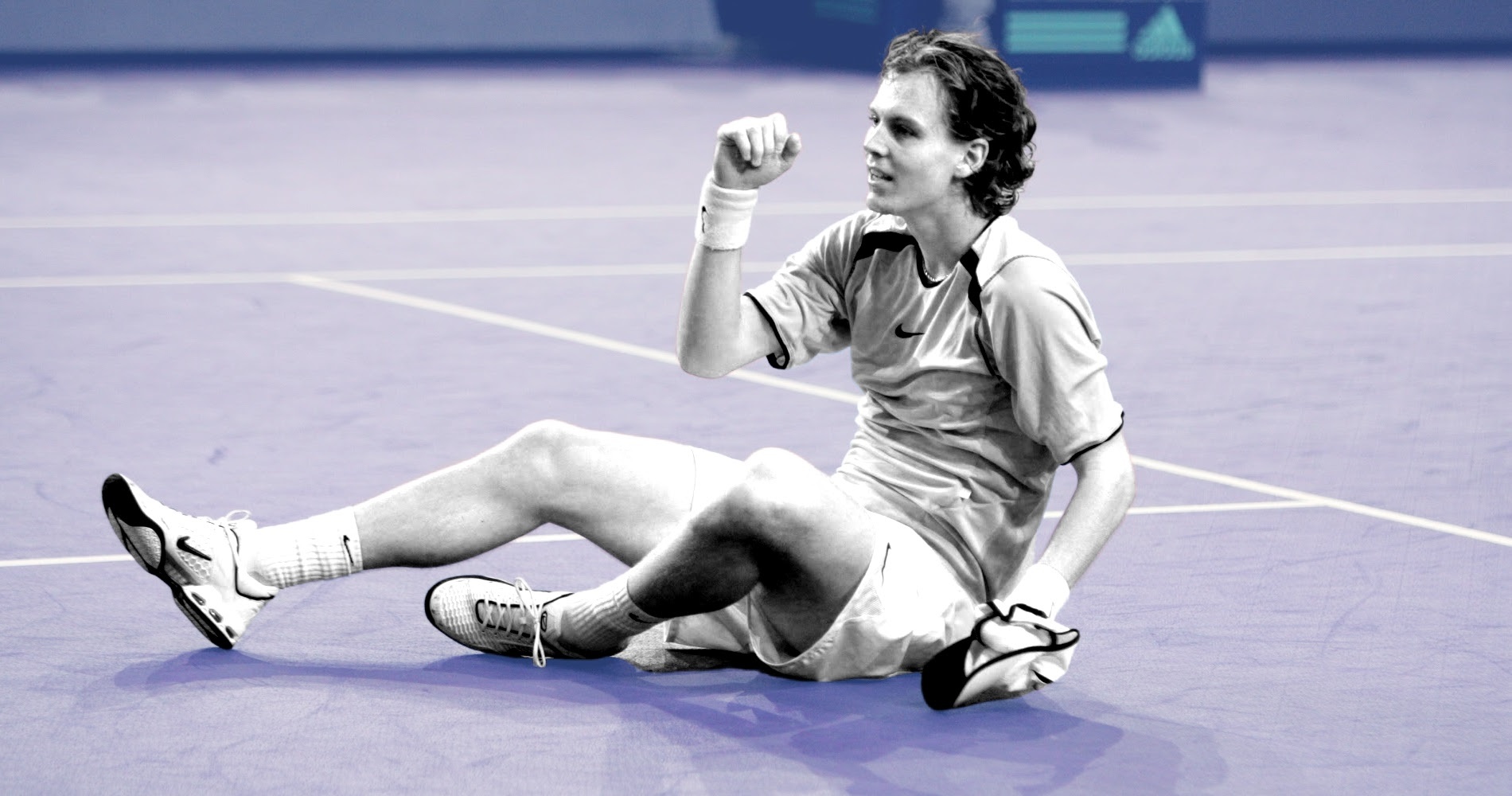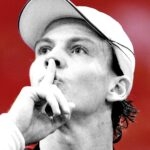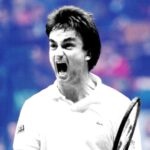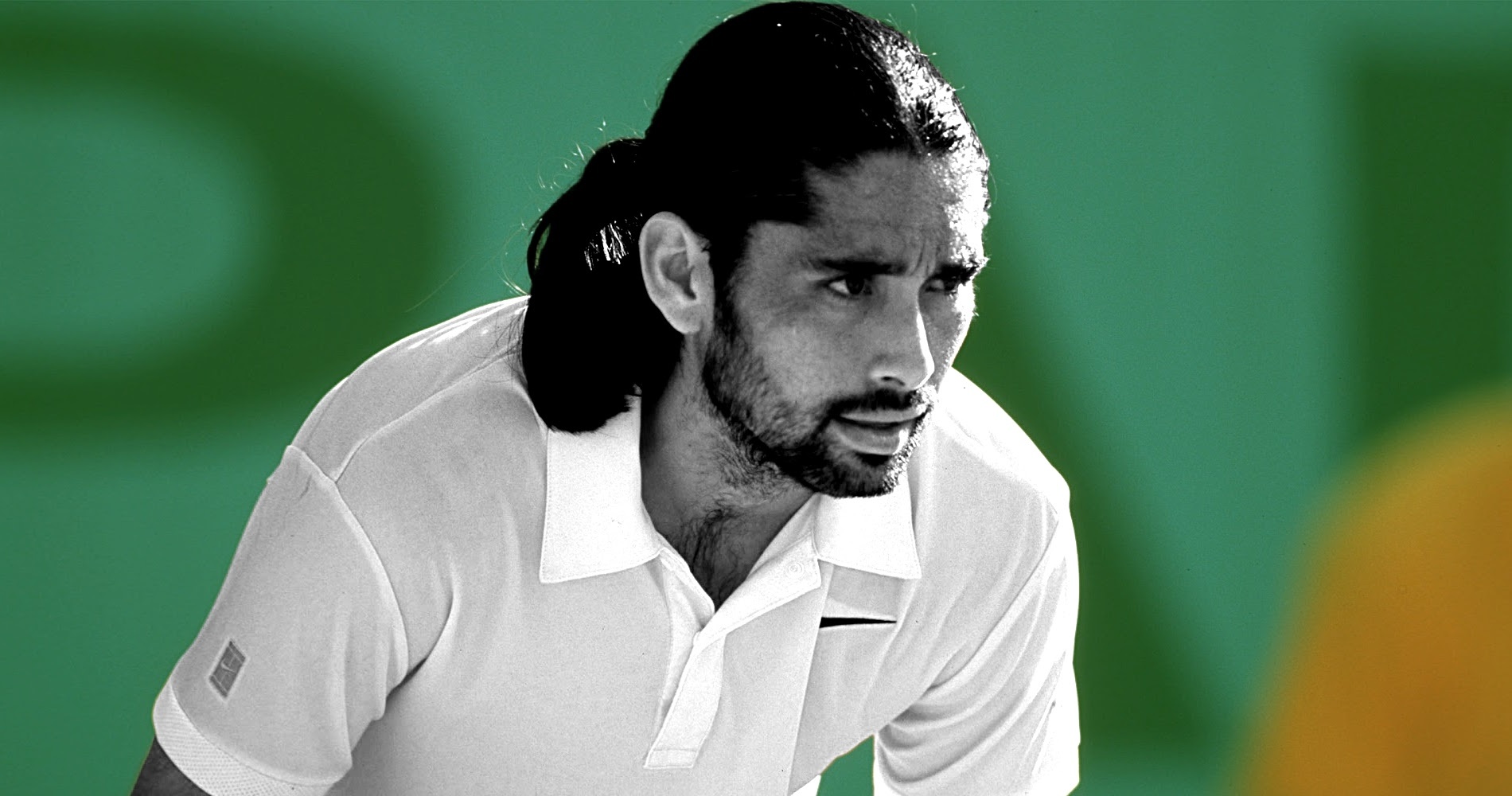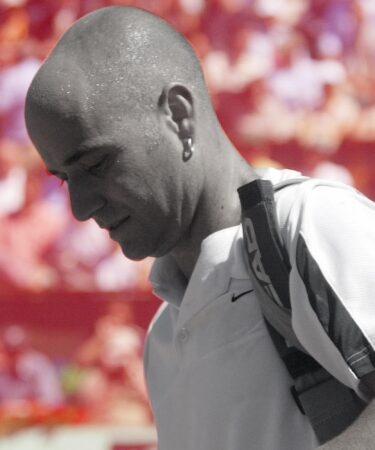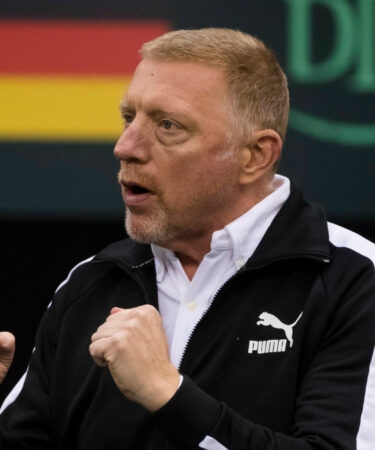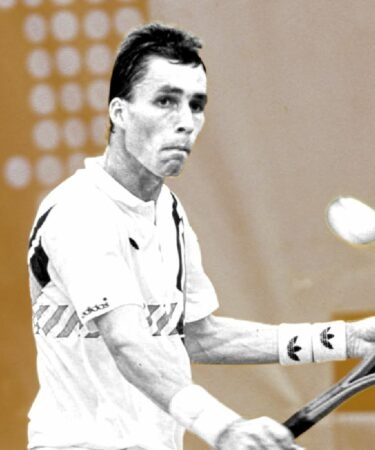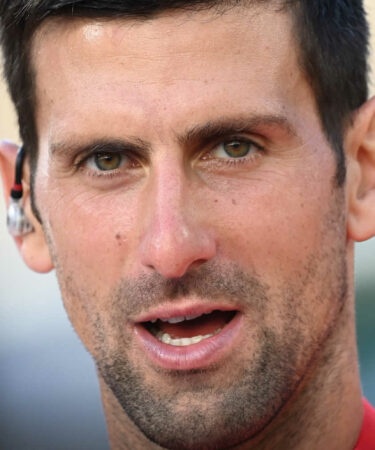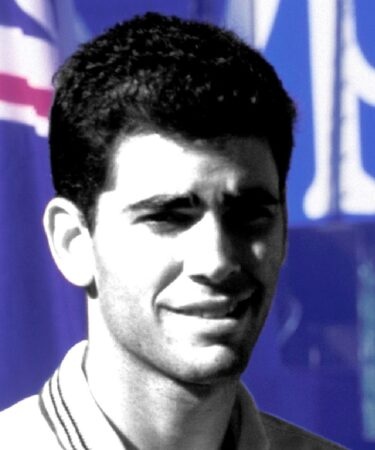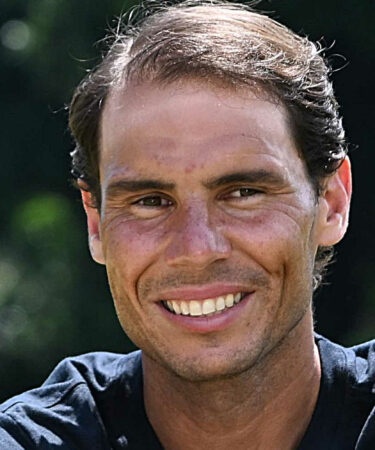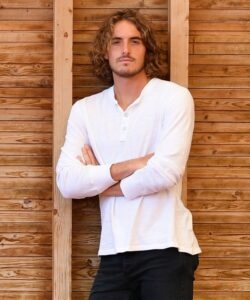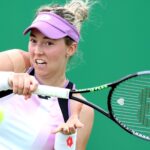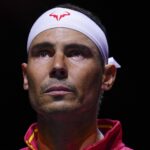Nalbandian, Ferrer, Coria… The 10 greatest (retired) male players who never won a Grand Slam tournament
Tennis Majors takes a closer look at some of the top players who never won a Grand Slam. It is also an opportunity to give them back some of the glory that misfortune has eternally, and more or less unfairly, denied them
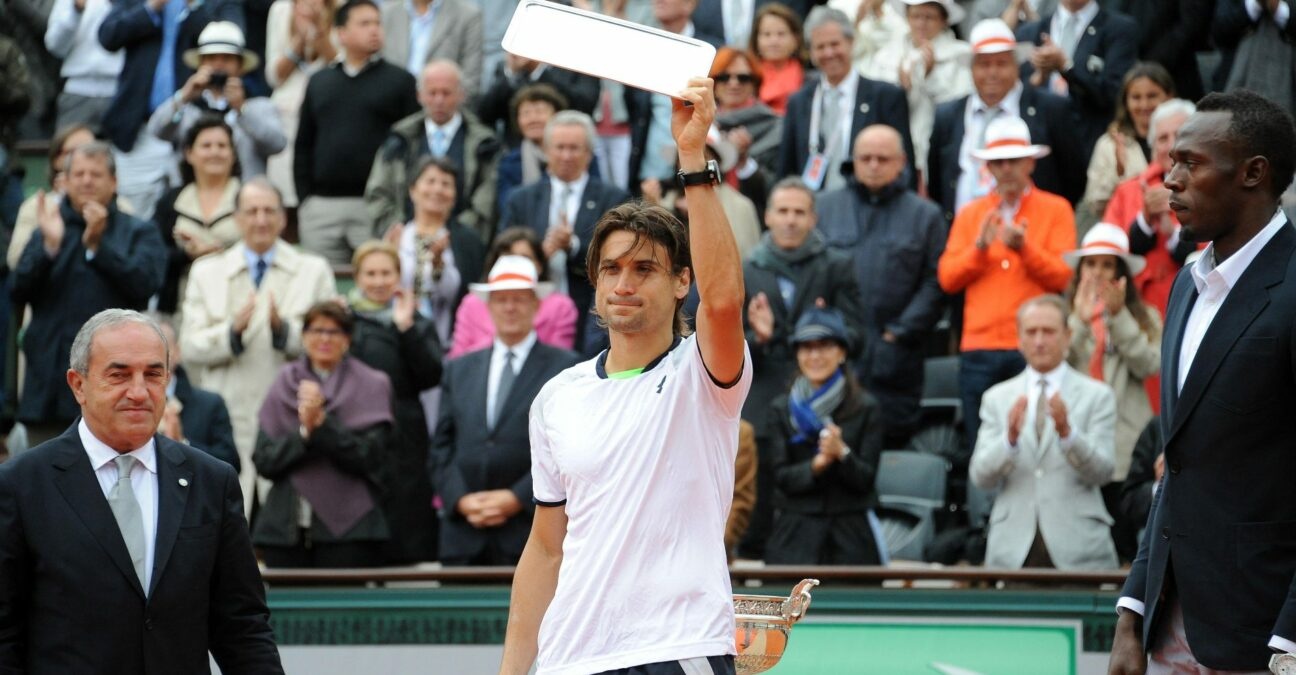 Usain Bolt (Jam) Jean Gachassin (president FFT) David Ferrer (Esp)
Usain Bolt (Jam) Jean Gachassin (president FFT) David Ferrer (Esp)
Could have, should have, would have… But fate decided otherwise. The history of tennis is full of talented players who did not reach their full potential and didn’t manage to win the supreme title that was almost within their grasp.
It should be noted that in order to establish this ranking, and to limit our embarrassment of choice, we have limited ourselves to retired players. Otherwise, it is possible that Alexander Zverev would have won the title, ahead of many other contenders (Dimitrov, Tsonga, Nishikori, etc.).
We also limited ourselves to the Open era, otherwise it becomes nigh on impossible. For the rest, we have drawn up the hierarchy according to criteria related to the track record, natural class, their legacy and perhaps even more, left in our hearts.
Nevertheless, you have the right to disagree. And even to let us know
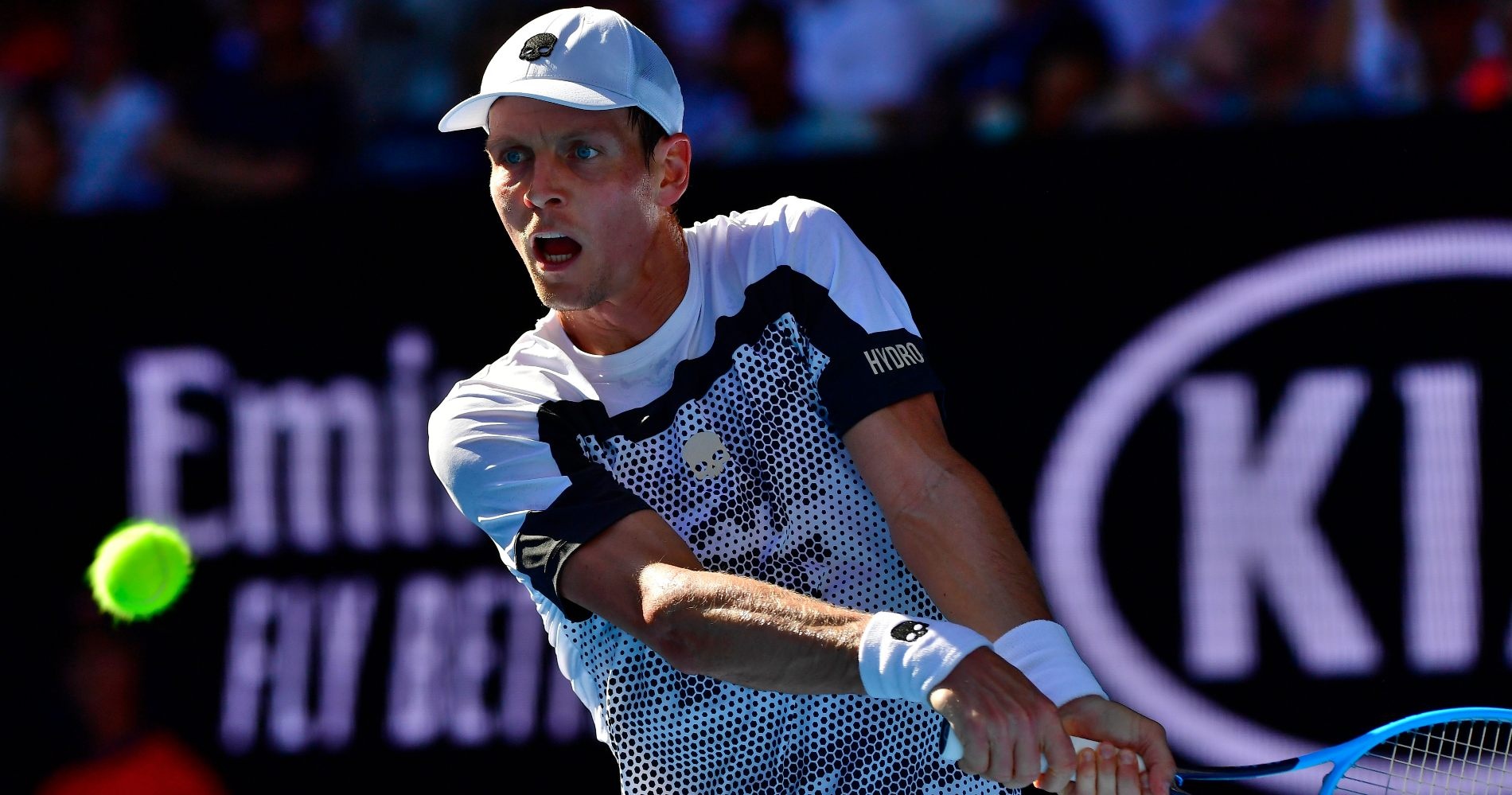
No 10: Tomas Berdych, big-hitting Czech
- Country: Czech Republic
- Highest ranking: No 4
- Best Grand Slam: RU Wimbledon 2010
His career, spanning 17 years between 2002 and 2019, was phenomenally consistent. Tomas Berdych won on every surface and on every continent, winning 13 titles, including the Rolex Paris Masters in 2005 at the age of 20.
He was promised a radiant destiny: it was, but with a “but”: the Czech, No 4 in the world in 2015, was one of those unlucky enough to share his time with the Big Three, who shattered his dreams from start to finish.
Berdych tried, however. He reached the last four of every Grand Slam (seven in all), including the Wimbledon final in 2010, where he was beaten by Nadal. He has lost more finals than he has won and his somewhat predictable game has probably prevented him from getting past the monsters of his time. But his perseverance and talent deserved better.
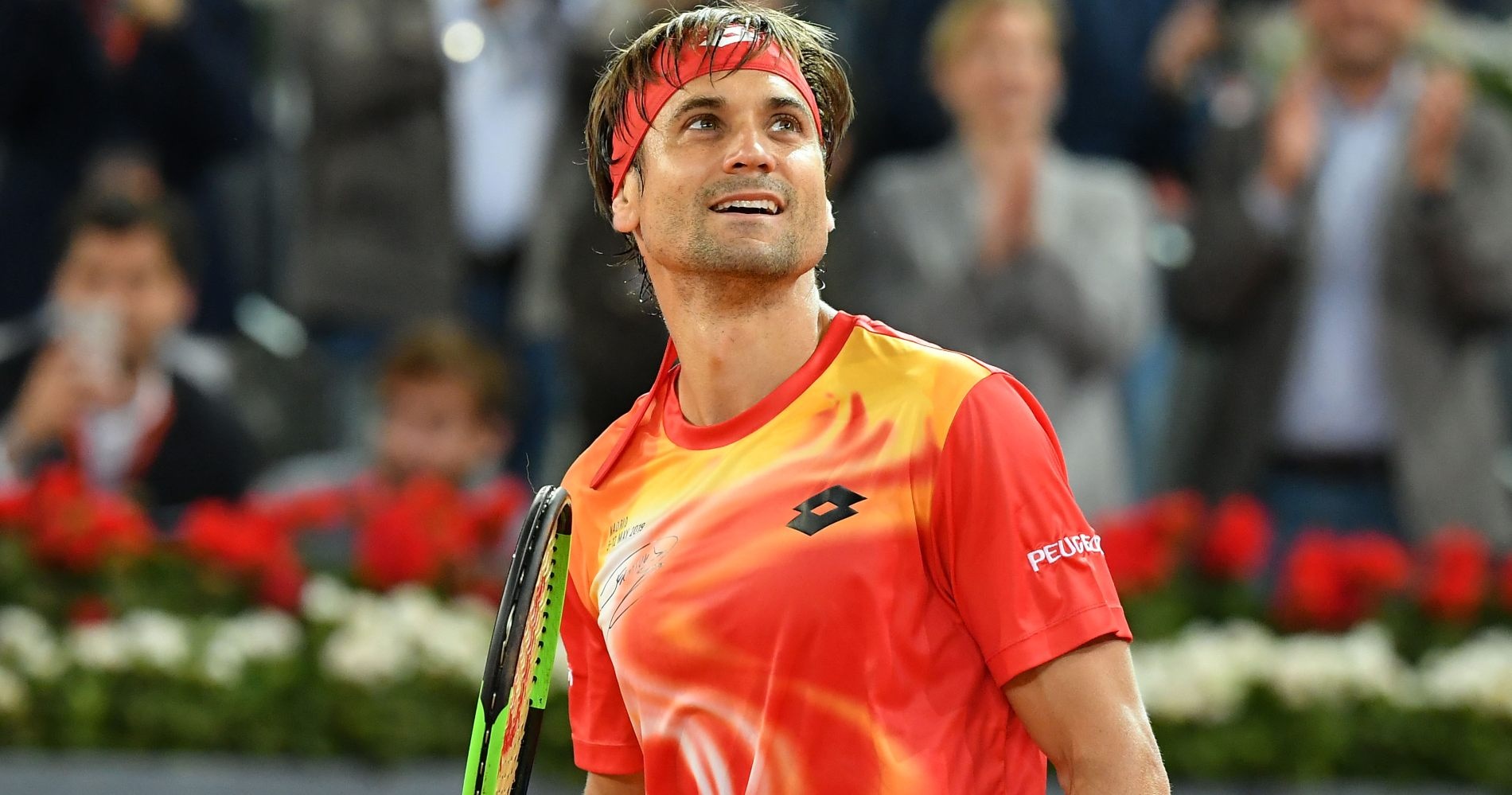
No 9: David Ferrer, Spanish terrier
- Country: Spain
- Highest ranking: 4
- Best Grand Slam: RU French Open 2013
A similar profile to Berdych, not in terms of style of play but in the way he was systematically blocked by the Big Three from realising his ultimate dreams, despite an exceptionally dense and long career, which he (like Berdych) ended in 2019.
Also like Berdych, the Spaniard reached a Grand Slam final, at the 2013 French Open, where he was also beaten by Nadal. Like Berdych, he has also won the Rolex Paris Masters (in 2012), his only Masters 1000 title.
Although not as talented as the Czech, he ended up with a superior record of 27 titles, plus three Davis Cups, reached the final of the ATP Finals in 2007 and was best-ranked world No 3. Not bad for a notorious smoker (he did have three lungs).
But the terrible thing is that, again like Berdych, you don’t really get the feeling that he was that close to hitting the jackpot. He too was simply born in the wrong era.
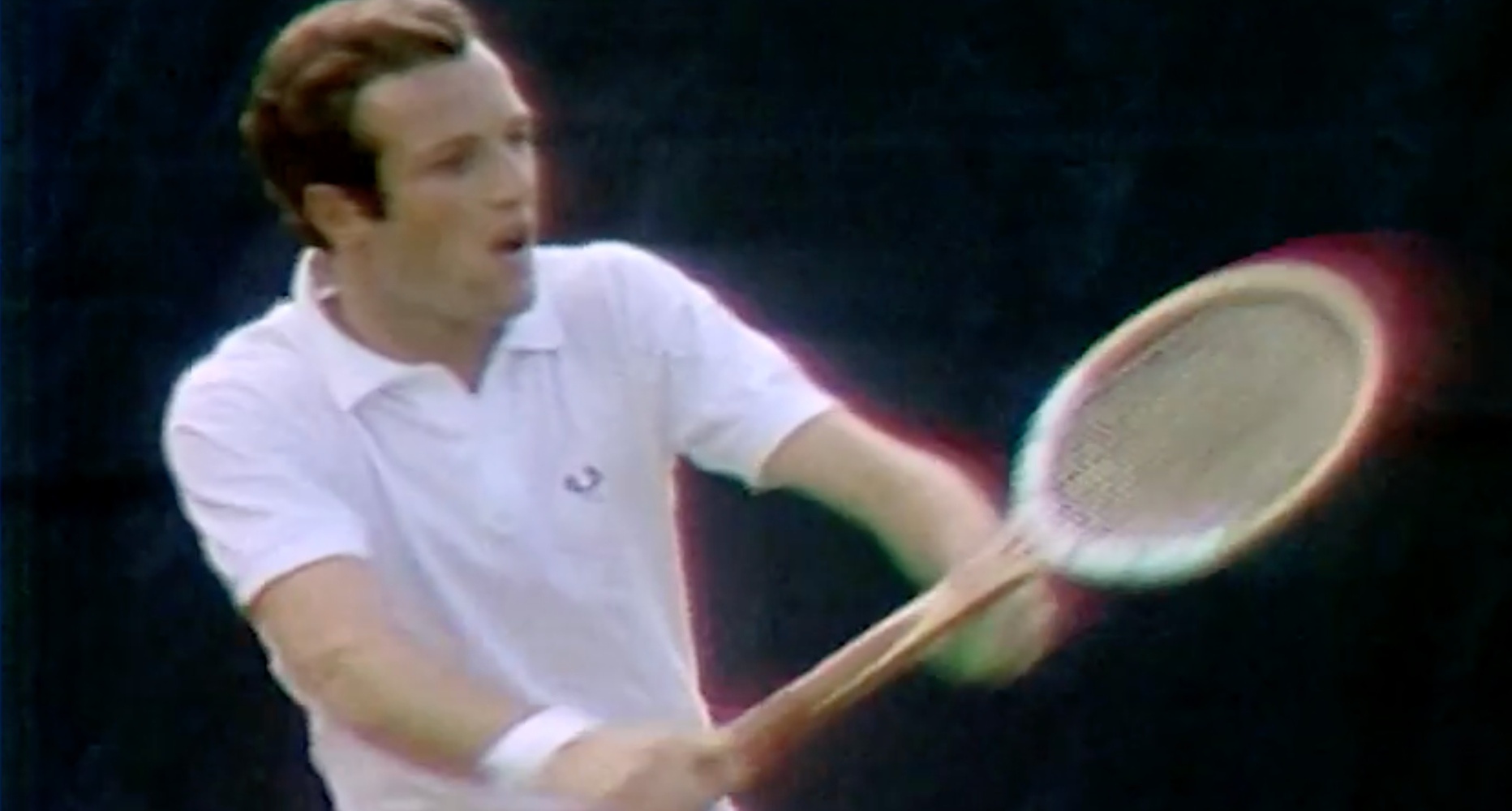
No 8: Tom Okker, The Flying Dutchman
- Country: Netherlands
- Highest ranking: 3
- Best Grand Slam: RU US Open 1968
The passage of time has meant that Tom Okker is often forgotten in this debate. And yet, it is Okker who holds the honorary title of the most successful player in the Open era who never won a Grand Slam, winning 35 ATP Tour titles in the Open era, including the prestigious Rome tournament in 1968, and many more in the amateur era.
That year, the “Flying Dutchman”, No 3 in the world at his peak, lost a knife-edge US Open final to Arthur Ashe (14-12, 5-7, 6-3, 3-6, 6-3). It was his best chance of glory and the closest he came.
He then played three more major semi-finals, each time beaten by the eventual winner: French Open 1969 (Rod Laver), Australian Open 1971 (Ken Rosewall), US Open 1971 (Stan Smith) and finally at Wimbledon in 1978 (Bjorn Borg), at the age of 34.
Proof, all the same, of his consistency, his versatility and his longevity. Okker, who was not a very powerful player, perhaps lacked a killer shot that would have taken him even further. But if ever a CV deserved a Grand Slam title it was his.
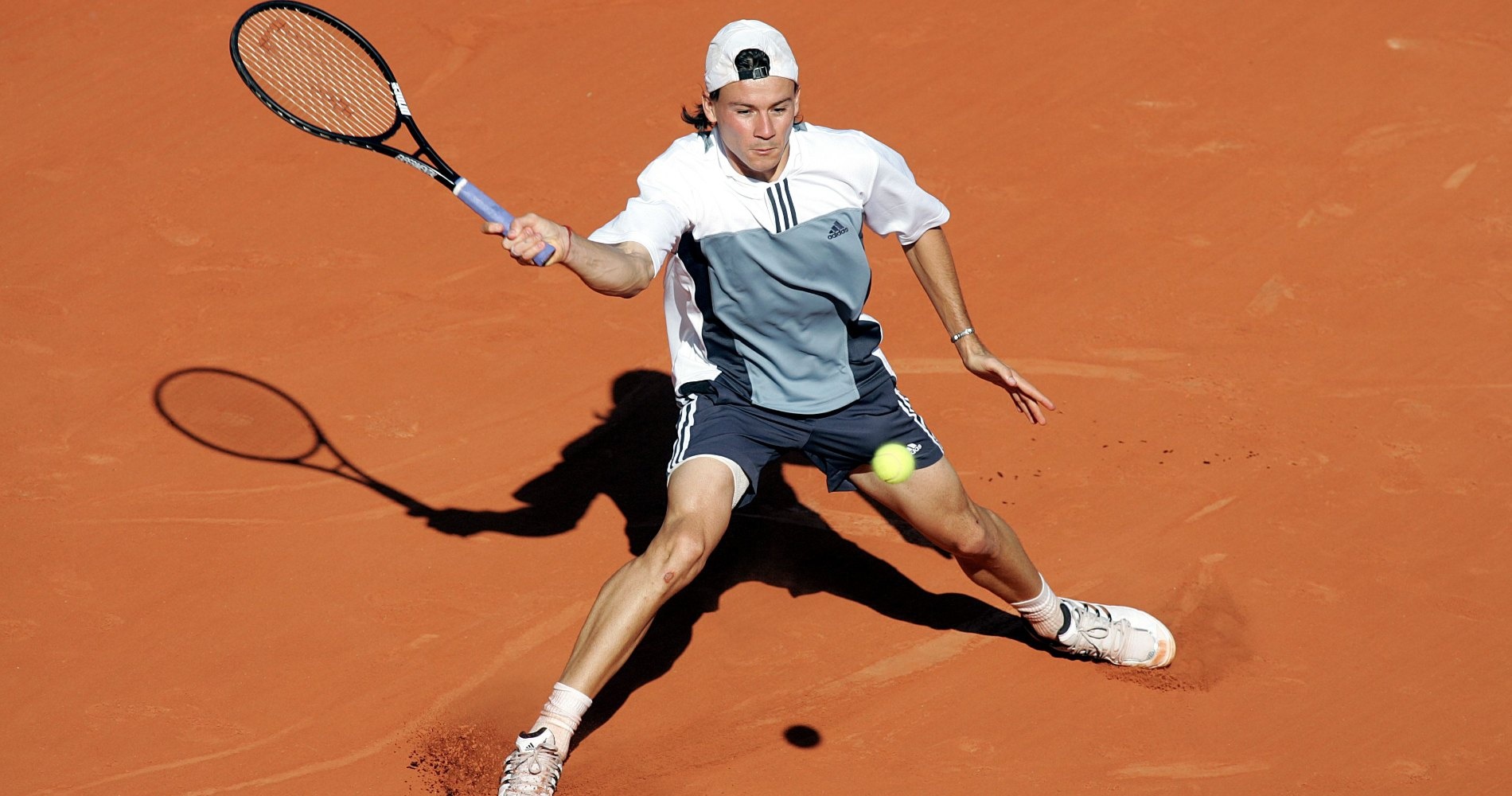
No 7: Guillermo Coria, feather-like clay-court expert
- Country: Argentina
- Highest ranking: 3
- Best Grand Slam: RU French Open 2004
Of all the players on this list, Coria is the one who came closest to not being on it because he had two match points in a crazy 2004 Roland Garros final against his compatriot Gaston Gaudio.
Because his career was short, because it did not start well with a positive test for nandrolone in 2001 and because it did not end well with an acute crisis of confidence that pushed him towards the exit in 2009 (at 27), we sometimes forget the level of excellence that he reached at his peak, between 2003 and 2005.
Light as a feather, quick as a flash, with an eagle eye and a velvet hand that earned him the nickname “El Mago” (the magician), the Argentine was, for two or three seasons, the best player in the world on clay, a surface on which he won 10 of his 11 titles, including the Masters Series in Hamburg in 2003 and Monte Carlo in 2004.
But it was his destiny not to win the supreme title at Roland Garros, coming close to disqualification in the semi-finals against a UFO named Martin Verkerk, and then falling at the final hurdle in that 2004 final.
Then Rafael Nadal, against whom he lost a Dantesque final in Rome in 2005, arrived, definitively dispelling his illusions. The Coria comet was fleeting. But brilliant.
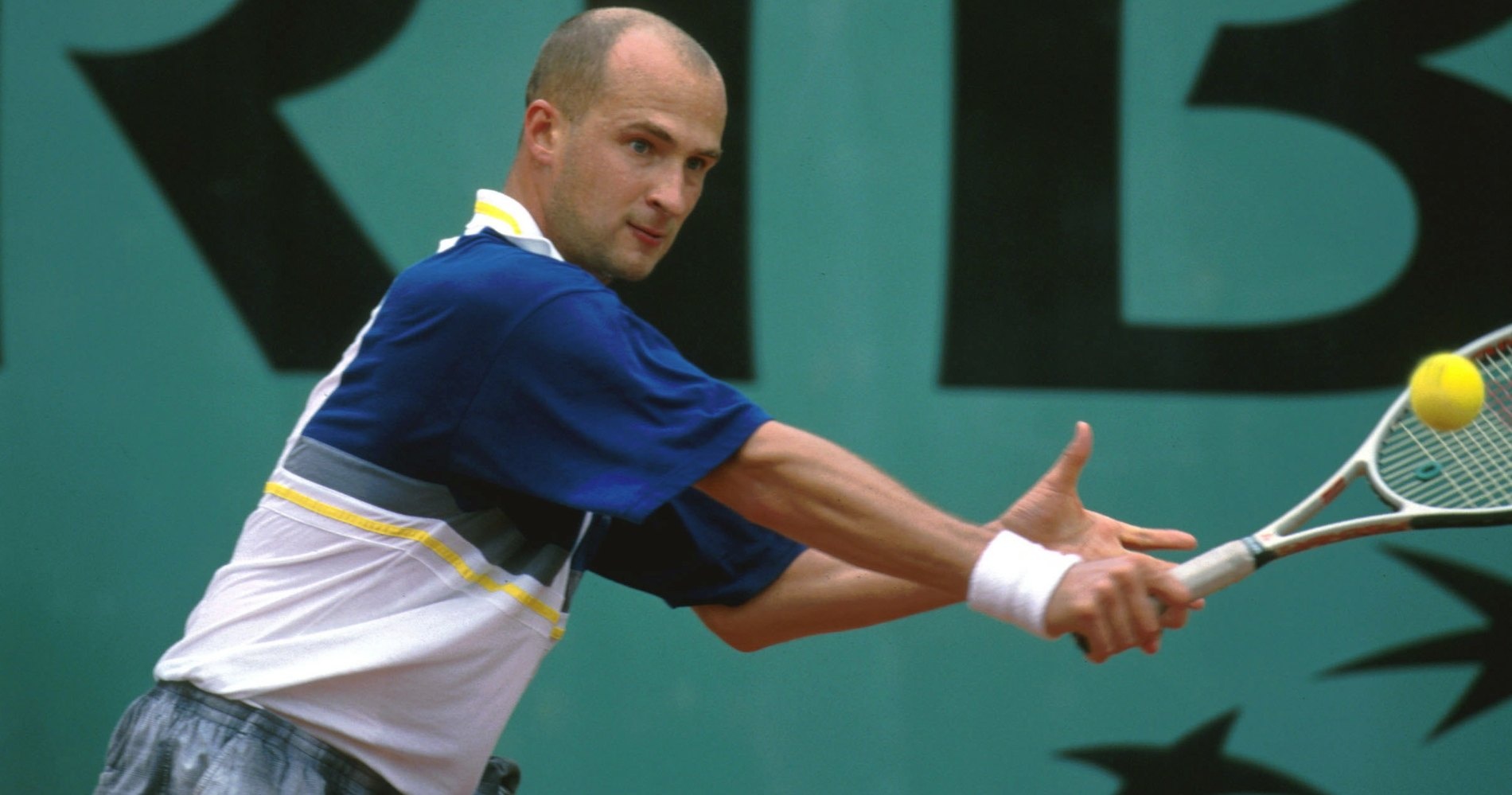
No 6: Andrei Medvedev, gentle Russian bear
- Country: Russia
- Highest ranking: 4
- Best Grand Slam: RU French Open 1999
An enormous talent and rich and cultured personality, Andrei Medvedev was a precocious player, able to reach the second week of the French Open at the age of 17 in 1992 and then the semi-finals the following year.
He was then, for many, the star in the making. But his frail body somewhat hampered his progress, without preventing him from enjoying a short but intense career: he won11 titles, including four Super 9s (the old Masters 1000s): the title in Monte Carlo in 1994 and the title in Hamburg three times in 1994, 1995 and 1997.
His record, essentially built on clay (even if he reached the second week of all the Grand Slams), enabled him to reach a highest ranking of No 4 in 1994 but it was in 1999, after returning from injury, that he almost won the big one when he led Andre Agassi by two sets to love in the final at Roland Garros. Maybe he lost that match out of an excess of “kindness”, because he found it difficult to finish off his friend, who himself was aiming for history. His chance was gone.
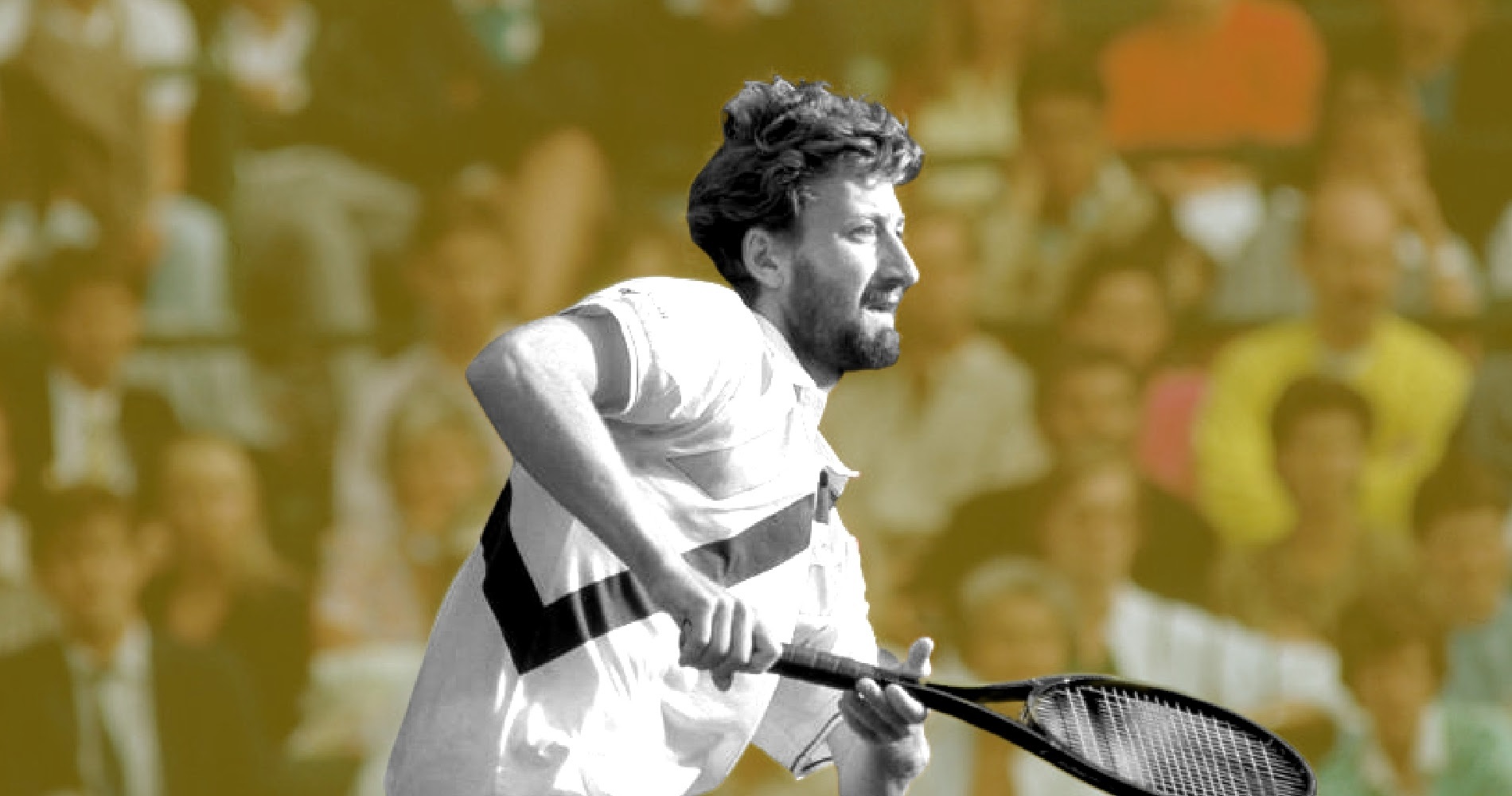
No 5: Miloslav Mecir, “The cat”, Slovakian genius
- Country: Slovakia
- Highest ranking: 4
- Best Grand Slam: RU US Open 1986, Australian Open 1989
Difficult to separate from Medvedev, with whom he shared the ease and also a certain indolence, sometimes bordering on nonchalance in his case. Like Medvedev, Mecir has 11 titles to his name. But if he was not necessarily destined to play the leading roles in an era infested with monsters, the overall record is far superior to that of the Ukrainian.
The career of the “Cat”, nicknamed as such for his ability to give the ball clawing strokes masked as shimmering caresses, includes three prestigious victories: the 1987 Miami tournament, the WCT Masters the same year and a gold medal at the first Olympic Games of the modern era, in Seoul, in 1988.
World No 4 at the beginning of 1988, he also played in two Grand Slam finals: the 1986 US Open – on this occasion he was the last to play a major final with a wooden racket – and the 1989 Australian Open, each time defeated by Ivan Lendl, his bête noire. He was the only player to beat Mats Wilander in a Grand Slam in 1988, in the quarter-finals at Wimbledon and he led Stefan Edberg two sets to love in the semis before going down in five.
A very versatile and excellent doubles player, Mecir had to cut short his career at the age of 26 due to back problems. He slipped away at a snail’s pace (or rather a cat’s pace). But no one has forgotten him.
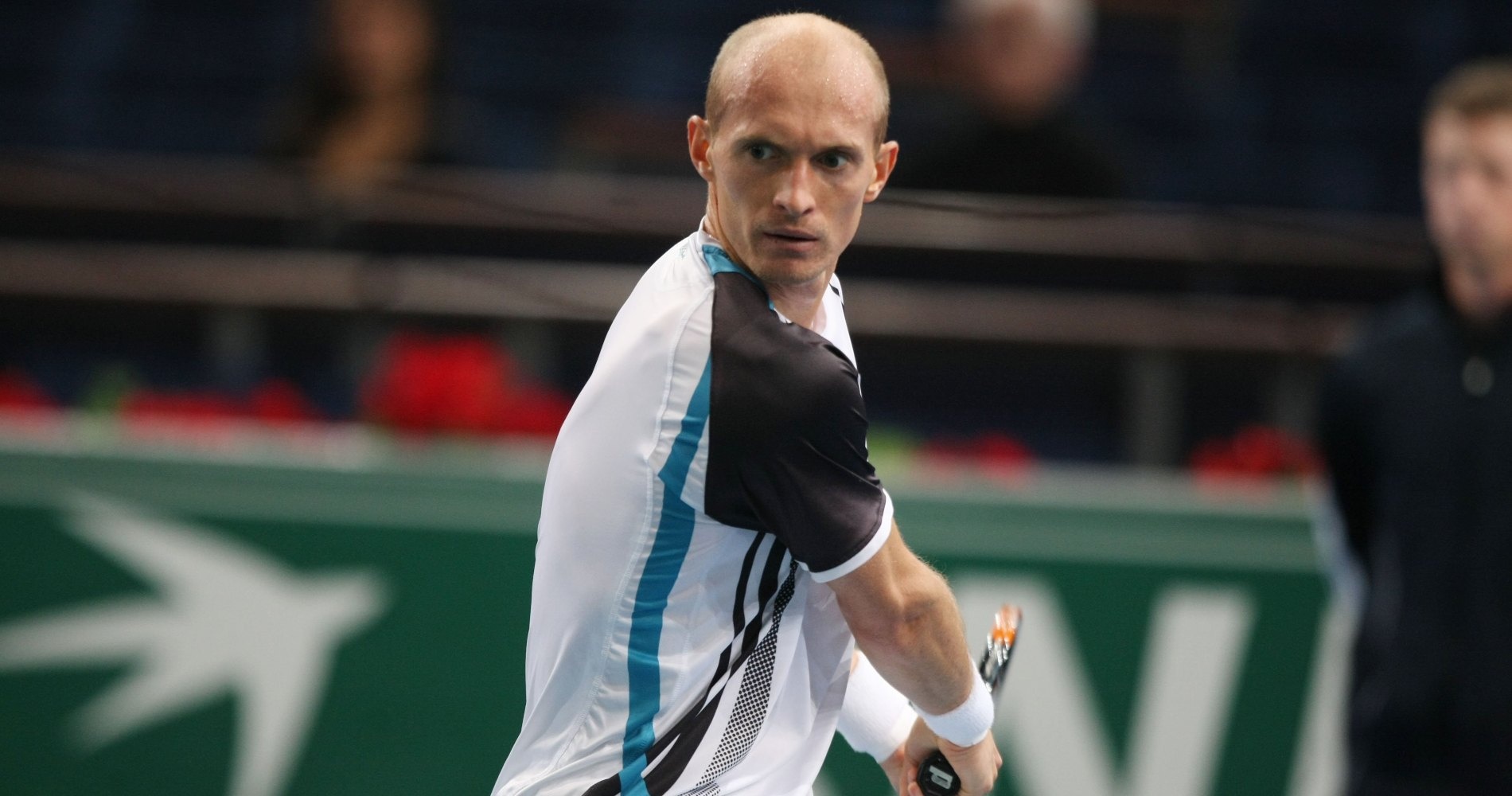
No 4: Nikolay Davydenko, ever-consistent Russian
- Country: Russia
- Highest ranking: 3
- Best Grand Slam: SF French Open, 2005, 2007, SF US Open 2006, 2007
Nikolay Davydenko is the only one here who has never played in a Grand Slam final. Almost an anomaly given his consistency at the highest level between 2005 and 2010. Perhaps even an injustice, since he lost in the semi-finals at Roland Garros in 2005 (in five sets) to Mariano Puerta, who later tested positive for drugs.
But that’s the way it is. Davydenko may have played three other major semi-finals (Roland Garros 2007, US Open 2006 and 2007), won 21 titles, including three Masters 1000s (Rolex Paris Masters 2006, Miami 2008, Shanghai 2009) and above all the ATP Finals in London in 2009 (beating Rafael Nadal, Roger Federer and Juan Martin Del Potro), but he never won the supreme title.
The fault, once again, lies with the monsters of his time. And yet, he was one of the very few capable of matching their level, especially Nadal, against whom he had a positive record (Federer, on the other hand, having tormented him more often than not).
Davydenko, No 3 in the world in 2006, and also winner of the Davis Cup that year, nevertheless leaves the image of a player with an exceptional pace. Not a great talker, but a delight to watch on his good days.
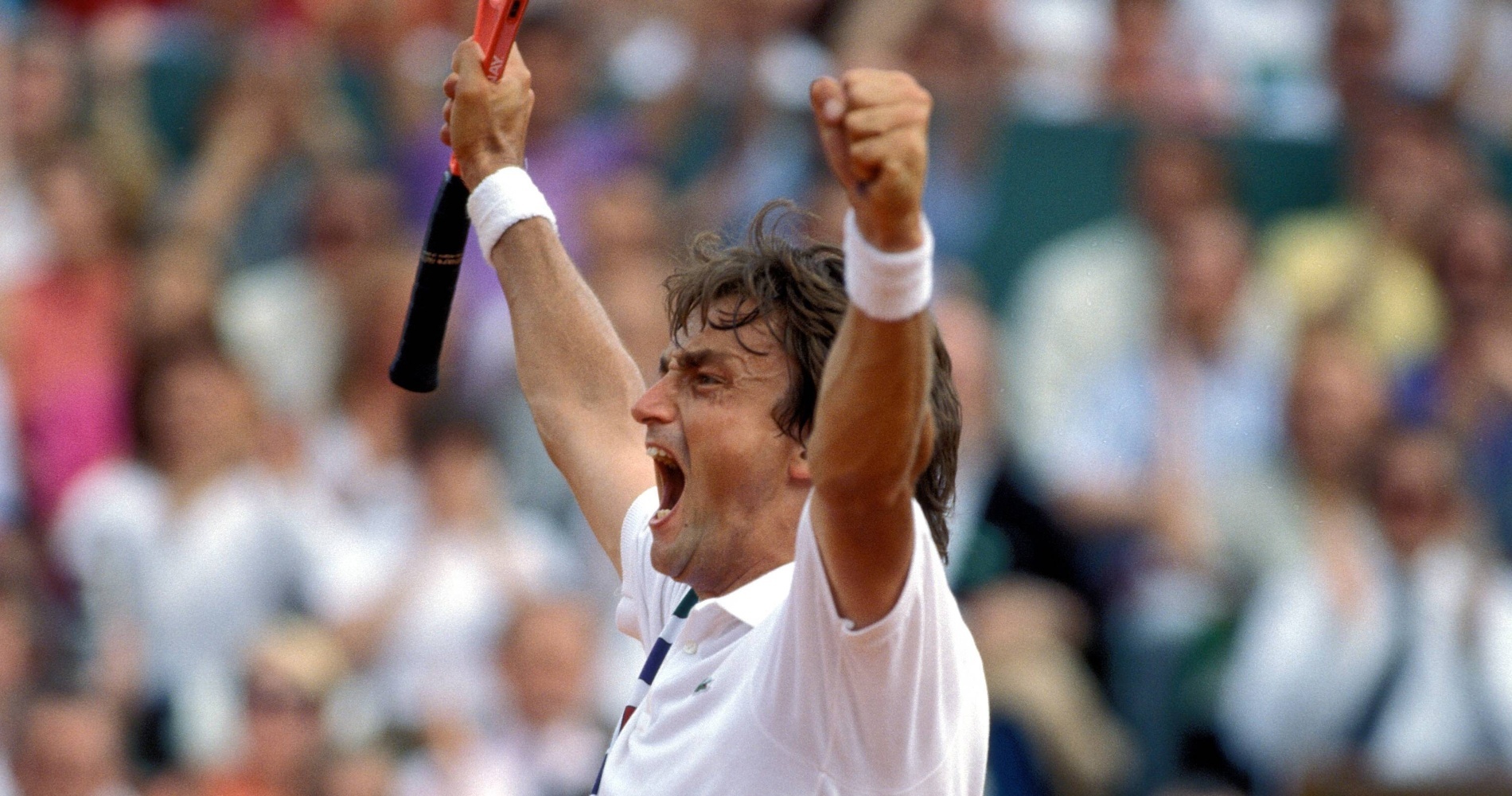
No 3: Henri Leconte, mercurial, brilliant left-hander
- Country: France
- Highest ranking: 5
- Best Grand Slam: RU French Open 1988
There’s a bit of raw talent on our podium. And talent means Henri Leconte, perhaps not the most successful player on this list (only nine titles on all surfaces), but one of the most naturally gifted.
We won’t go so far as to say that “Riton” deserved to win a Grand Slam, as he was outclassed by Mats Wilander in his only major final at Roland Garros in 1988, but he remains the last Frenchman to reach the final in Paris.
Indeed, it is perhaps his first Porte d’Auteuil semi-final loss in 1986 (to Mikael Pernfors) that leaves him with the most regrets, in a year when he also reached the Wimbledon semi-finals and held his career-best ranking of No 5.
Nicknamed ‘The Graveyard’ for his ability to transcend against the best, the brilliant French left-hander with the sugar-coated backhand and the lightning-fast volley may well have played his best match against Pete Sampras in the mythical 1991 Davis Cup final won by France in Lyon.
He was a semi-finalist again at the French Open a few months later, but then gradually faded away, overcome by a recurring herniated disc. Less injured, more consistent, he could have gone higher. But it wouldn’t necessarily have had the same charm.
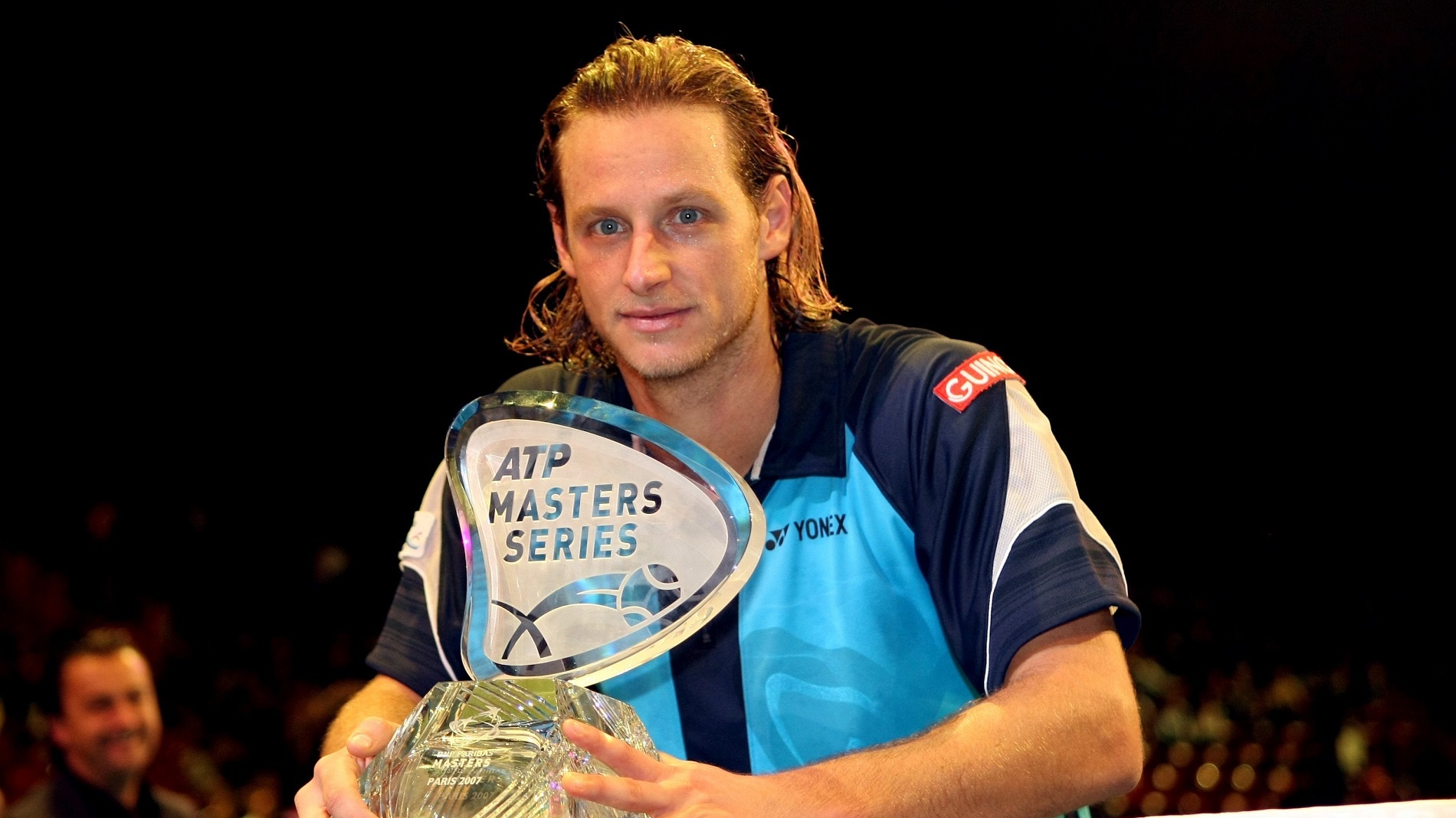
No 2: David Nalbandian, backhand from the gods
- Country: Argentina
- Highest ranking: No 3
- Best Grand Slam: RU Wimbledon 2002
David Nalbandian should have won not one but several Grand Slams, if he had focused less intermittently on his sport.
He should perhaps even have been the equal of the Big Four, given that he was as strong as (if not stronger than) Federer as a junior – he beat him in the US Open final a year younger – and remains to this day the only man to have beaten Federer, Nadal and Djokovic in the same tournament: Madrid 2007, one of the two Masters 1000 titles he has won (11 in all), along with the Rolex Paris Masters a few weeks later, beating Federer and Nadal again. Not forgetting, of course, the 2005 Masters, where he triumphed by coming back from two sets down against Federer.
Extremely complete, capable of taking the ball early and finding fantastic angles, Nalbandian is the only Argentine to have reached the semi-finals of every Grand Slam, including the 2002 Wimbledon final (lost to Lleyton Hewitt) at just 20 years of age. He was one point away from another at the 2003 US Open, missing a match point in the semi-final against Andy Roddick.
He was also a semi-finalist at the 2006 Australian Open and the 2004 and 2006 French Opens, but on each of these occasions he faded away. A bit paunchy and often injured from 2009 onwards, perhaps he didn’t have enough grit in him. But on his best days, what a treat.
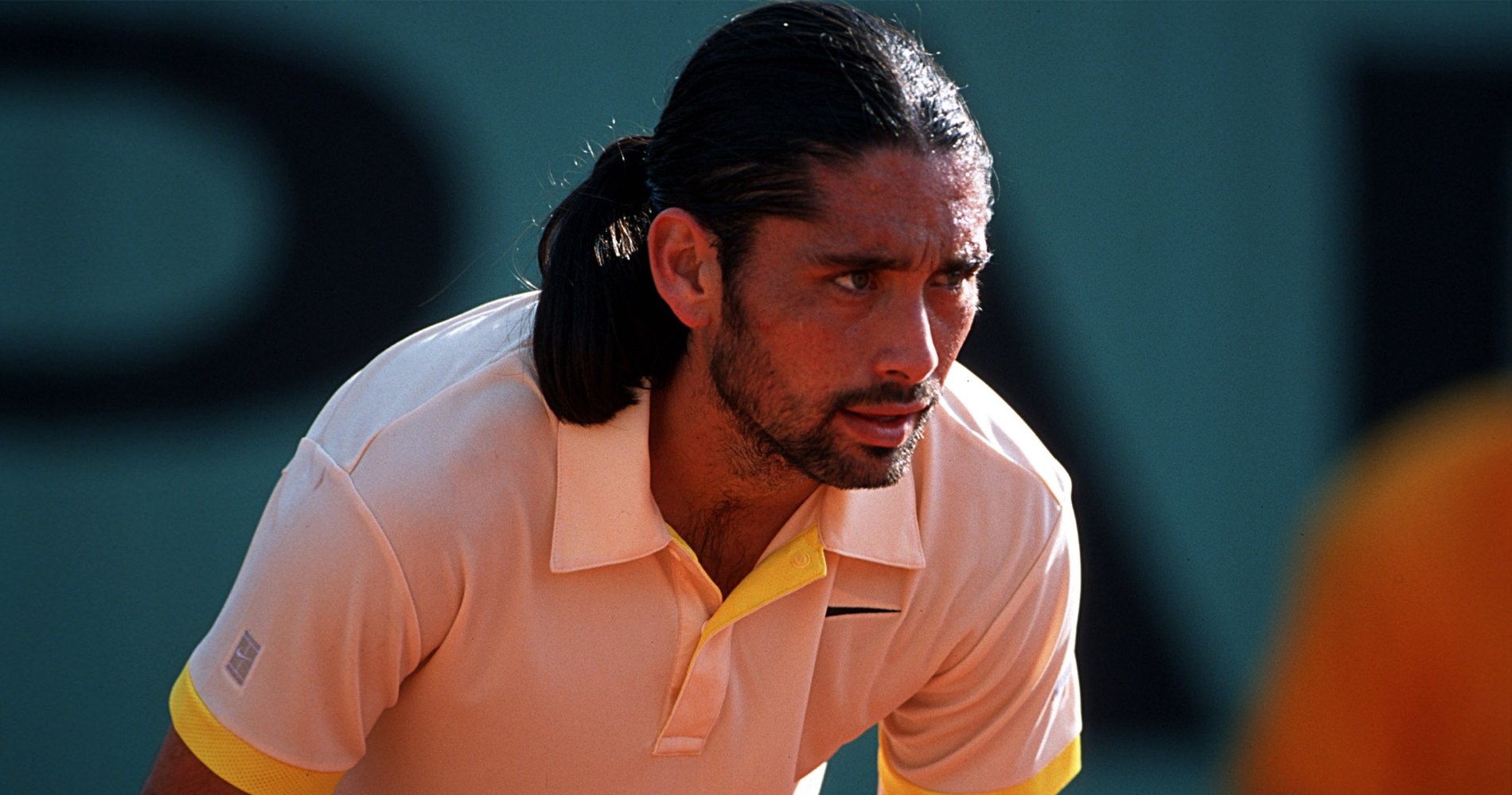
No 1: Marcelo Rios, world No 1, wand for a left hand
- Country: Chile
- Highest ranking: 1
- Best Grand Slam: RU Australian Open 1998
The only men’s world No. 1 in history never to have won a Grand Slam. It’s not for lack of talent, or for not having done what was necessary: in 1998, for his only major final at the Australian Open, he was stopped in the final by a Petr Korda who was to be penalised for drugs a few months later.
That said, it was at the French Open that the Chilean left-hander was most expected to win. But he never made it better than to the quarter-finals (twice), a disappointing result for a player who had managed the hat-trick of Masters 1000 on clay (Monte Carlo 1997, Rome 1998 and Hamburg 1999), for a total of 18 titles.
But it was finally on hard courts that “El Chino” (the Chinese) experienced his finest hours, with the rare Indian Wells/Miami double in 1998, which allowed him to become the world No 1, a first for a South American at the age of 22.
The term genius is not overused in his case. He was a hot-head, perhaps even Asperger’s-autistic, according to his own diagnosis, but he was a gifted tennis player, insolent with ease, whose beauty of movement was matched only by his green eyes.
With his velvet paw, he could draw arabesques with a tennis ball that obeyed his every command. Few things in life give as much pleasure as a compilation of his best points. With a few more inches and a few more pounds of muscle, and perhaps a little lead in his head as well, Rios, who left the scene early (in 2004, at age 28) after repeated injuries, could have been on another list: the GOAT list.
Others we considered: Tim Henman, Cédric Pioline, Alex Corretja, Mark Philippoussis, Marcos Baghdatis
